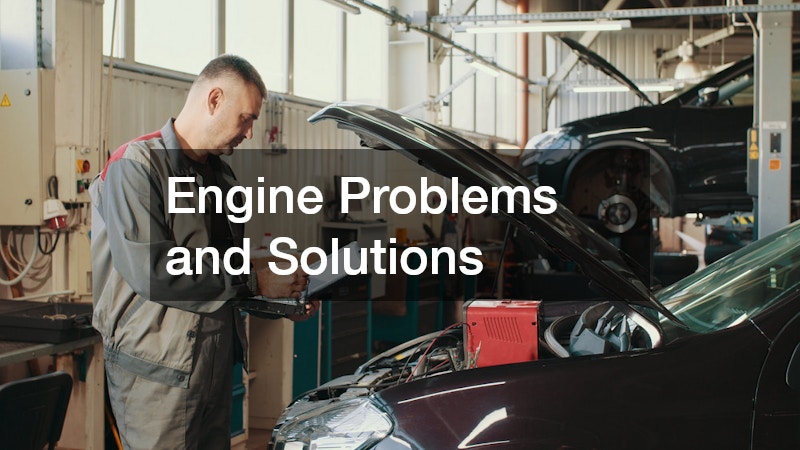In this article, we’ll explore essential car repair knowledge that every driver should possess. By understanding the basics, you can save time, money, and ensure your safety on the road. Empowering yourself with such knowledge also naturally extends the lifespan of your vehicle.
Recognizing Common Warning Signs
Learn about the usual signs that indicate a car might need repairs, such as strange noises, warning lights, or unusual smells. Strange noises can range from grinding sounds when braking to unusual clunking noises from the engine.
Recognizing the first signs of trouble can prevent small issues from escalating into major repairs.
Warning lights on your dashboard, like the check engine light, are crucial indicators that something in your vehicle needs attention. While some warning lights might indicate minor issues, they can also signal major problems; thus, timely diagnosis is essential. Uncommon odors like burning smells can indicate issues with parts like the transmission or brakes.
Regular Maintenance vs. Repair Needs
Understand the distinction between routine maintenance and identifying actual repair needs to keep your car in top condition. Routine maintenance includes oil changes, tire rotations, and brake inspections, which help prevent major repairs. However, even with regular maintenance, unexpected repairs might still arise due to wear and tear or sudden breakdowns.
It’s crucial to have a clear schedule for maintenance tasks based on manufacturer recommendations to avoid overlooking important checks. Establishing this routine protects against potential issues and prolongs the vehicle’s life. Maintenance often serves as a preventive measure, reducing the likelihood of encountering serious repair needs.
Brake System Repairs
Explore common issues with the brake system and when to seek repairs to ensure safety on the road. Brake pads, rotors, and calipers are components that often require attention due to their integral role in vehicle safety. Early signs of brake issues include squeaking noises, a spongy pedal, or longer stopping distances.
Failing to address brake problems can lead to dangerous driving conditions and potential brake failure. Regular inspections are key to detecting wear before it becomes severe enough to impact performance. Ensuring your brake system functions correctly not only protects you but also provides peace of mind while driving.
Battery Replacement and Maintenance
Learn how to identify when a battery needs replacement and tips for maintaining battery health. Batteries are crucial for starting your vehicle, and their failure can leave you stranded unexpectedly. Common symptoms of a failing battery include dim headlights, slow engine cranks, or the battery warning light on the dashboard.
To extend battery life, regularly check the terminals for corrosion and ensure they are clean and tightly connected. Keeping the battery tightly fastened reduces vibrations, enhancing its lifespan. Additionally, occasionally running the engine for extended periods during short drives can keep the battery charged.
Engine Problems and Solutions
Understand common engine problems and the most effective ways to address them. Engine misfires, overheating, and oil leaks are among frequent issues drivers face. Regularly checking engine fluids and paying attention to their levels and quality helps prevent some of these problems.
Recognizing the signs of engine trouble early can prevent significant damage and costly repairs. For instance, an illuminated check engine light or unusual knocking sounds should prompt immediate investigation. Engine issues can arise from various sources, including faulty spark plugs or a damaged head gasket.
Simple Repairs for Beginners
Find out which car repairs are straightforward enough for beginners to handle at home. Changing windshield wipers, replacing air filters, and topping off fluids are manageable tasks for inexperienced individuals. Such tasks save costs and offer a sense of achievement upon successful completion.
These repairs typically require basic tools and a bit of research or reference to the vehicle owner’s manual. Performing simple maintenance tasks builds confidence and enhances your familiarity with your car’s components. It’s important to approach these tasks with patience and attention to detail to avoid causing accidental damage.
Essential Tools for DIY Repairs
Get a list of essential tools you’ll need to handle basic car repairs without professional assistance. A basic toolkit may include items such as screwdrivers, pliers, wrenches, and a ratchet set. These tools will enable you to complete many common maintenance tasks independently.
Additionally, investing in a good-quality car jack and stands is essential for ensuring safety when working underneath your vehicle. A tire pressure gauge and a multimeter are also useful for routine checks and troubleshooting electrical issues. Building a well-equipped toolkit is an investment in self-sufficiency and ease of car maintenance.
When to Call a Professional
Learn how to determine when it’s time to seek the expertise of a professional mechanic. Some car repairs, like those involving the transmission or electrical systems, require specialized knowledge and equipment. Attempting these repairs without adequate skills can lead to further damage and increased repair costs.
In conclusion, equipping yourself with fundamental car repair knowledge empowers you as a driver. With the right information, you can be prepared for any situation on the road and ensure the longevity of your vehicle. Understanding when to perform maintenance yourself and when to consult a professional is essential for efficient vehicle care and peace of mind.





